The Sorcerer's Apprentice
Melville, Mormons and Moby-Dick

Melville, Mormons and Moby-Dick
Once upon a time, at sunrise on the first of April, there appeared a man dressed in cream-colors, at the water-side town of Nauvoo. The river was phosphorescent in the dawn light as the stranger made his way off the landing and along the beach. He was on his way south from Galena to Cairo, so he said.
The stranger drifted into the shadow of the trees and then stooped to pick up a white stone on the beach that had caught his eye. A pale gray like granite but with white stripes, it had an almost transparent quality. Nephite.
He that hath an ear, let him hear what the Spirit saith. I will give him a white stone, and in the stone a new name is written, which no man knoweth saving he that receiveth it.
This small egg-shaped stone he now held in his hand glowed with a cold fire. He was aware of mad-stones although he had never seen one. They could be useful, he had read, if he was ever bitten by venomous Serpents, Scorpions and mad Dogs.
It was still early and the town was hiding itself. In the stillness of the moment, he sensed a slow pulse coming from the stone, a rhythm and a revelation that was centuries old, foretelling the future of this pestilence ridden swampland. A migrant people overwhelmed by violence... Indians, Hebrews, Lemurians, Thetans…
The vision passed and he stared at the Seer Stone he held in his hand. Here in this place on America’s Frontier between the City Beautiful beyond the trees and the Great River here at his feet, he understood that we lift the veil at our own risk and once we do there is no way back.
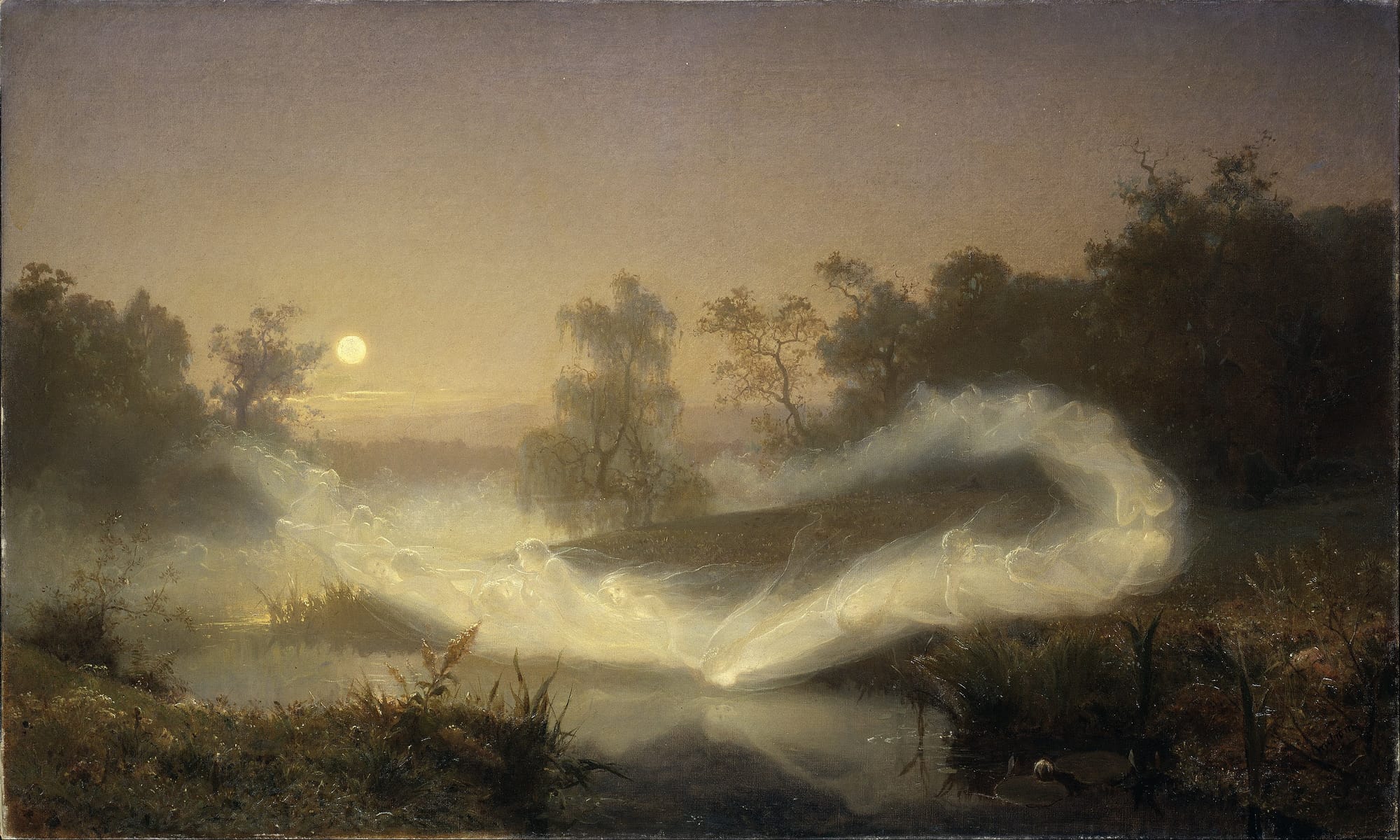
He set off to find the town. There had to be more to the Mormon Church than the missionaries he had encountered back in Albany. He respected their sincerity and their tenacity, but their glittering certitude about salvation always became tiresome. Would Joseph Smith himself be any better? The Mormons were America's great pioneer faith. What other religion allowed us to become kings, even gods in the heavens? They offered rebellion, they offered to restore the ancient traditions of magick and alchemy, they offered revelation and a sense of mystery that had been lost. But were the Saints afraid of eternity or were they in search of it? Those who crave the afterlife find it quickest.
The King of Nauvoo
Herman Melville found Joseph Smith’s sacred moonstone, the Urim, on the Mississippi shores in 1840 and took it with him, crossing over the horizon by the Des Moines Rapids at dusk. A frantic Smith spent fruitless hours that day searching for it, returning home with what can only be regarded as very poor substitutes (some of these stones survive today). Let it be said that without the Urim there was no way Smith would ever realize where the stone had gone or who had taken it or whether his magic would ever be the same again, but the sorcerer’s apprentice never returned it. If there is a positive side to all this, we can read Moby-Dick. Of such strange coincidences is history made interesting.
Down by the river at dawn, Smith scoured the solid ground by the landing where the steamboat pulled in, that great rod of iron that brought desperately needed supplies. Staying hidden in case there were Missouri militiamen on the river, he experienced his last revelation, aided now by his one remaining Seer Stone. And so it came to pass that as he reached the young fruit trees he had helped plant, he felt a great mist of darkness encircle him. He could see a bright white figure casting stones into a pond, the ripples spreading out before him, one two three. And so it came to pass that as he crouched there, the shining figure advanced upon him, bearing a militiaman’s sword, forcing Smith (who was a man of peace) to shrink down upon the ground. The Angel passed by and he knew it for what it was: this was an Angel of Death. When the time was right, he would share this vision with the women he admired, but because he lacked the Seer Stone of Revelation, he could not decipher what any of this meant. He had to assume the worst though; was he living in the Last Days?
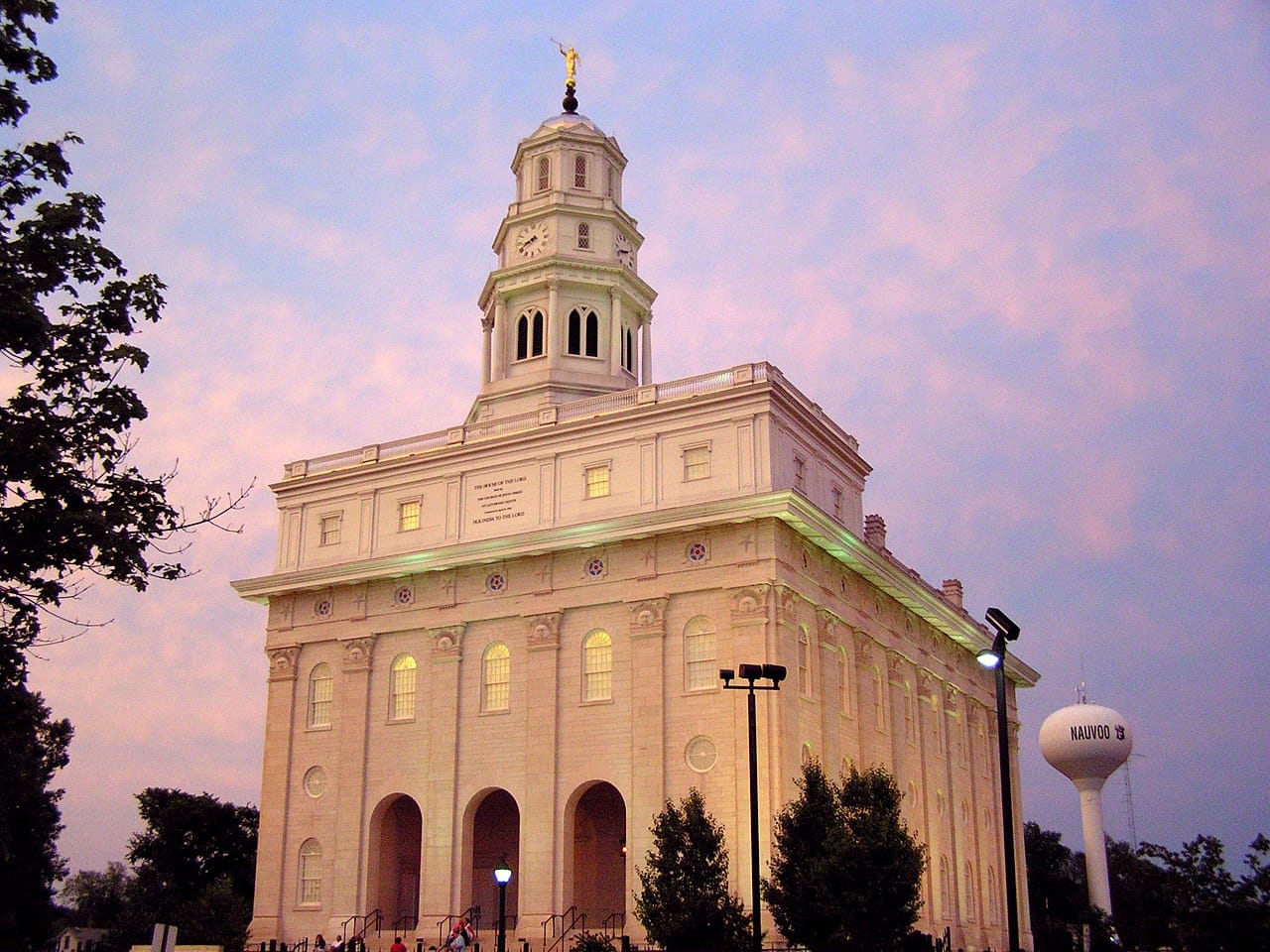
After losing Urim the White, the Prophet still had one stone, Thummim the Brown. In the kingdom of the blind the one-eyed man is still king. But what is Truth without Revelation? It is the ability to know what is true but to have no gift for understanding why it is so. This is when Joseph Smith started to become fearful that unless their population grew rapidly, the Saints would be destroyed. We know now that Truth without Revelation means Joseph Smith abandoned his traditional Christian belief in God and began to preach the strange new Truths, unauthorized and heretical, Gnostic and Kabbalistic, that had tugged at him for years.


Celestial Marriage and the Law of Adoption
The Book of Mormon said all that needed to be said in 1830. It is chloroform in print of course, but a masterpiece nonetheless. Yet there were two issues that didn’t made it into the Book: Celestial Marriage (polygamy) and the Law of Adoption (which bound men together and implicitly permitted homosexuality). That needed to be remedied. At least as far back as 1831, attractive young women had made their bewitching claims on him -- that saucy Fanny Alger – and it had not gone unnoticed by Smith that there were men who preferred other men.
Yet it was only after the experience down by the river in 1840, with the encouragement of that saintly scoundrel John Cook Bennett, that the Prophet was tempted to put some of these ideas into practice. In April 1841, the first of his two truly great acts of a Deep Sea Diver took place: he married Louisa Beaman in his first celestial marriage (dozens would follow). In 1842, the other step: Smith initiated trusted leaders into the Law of Adoption, which tacitly accepted the love between men. In 1843 he gave comfort to the male partner of a missionary, Lorenzo Barns, who had died in Britain. For Smith knew the Truth: there is nothing inherently wrong with polygamy or homosexuality.
But Smith lost his ability to foresee how things would turn out and, without Urim, the Apocalypse came upon him. He preached that God had once been a man like him and that he too, Joseph Smith, could free himself of earthly bonds and become a God. ("As man is now, God once was. As God is now, man may be.") He came to believe that we are all travelers in Time and that this temporary Space we live in ultimately does not matter for what matters is the Celestial Kingdom ahead. He saw that we need to collapse Time by restoring the past into the present – "the restoration of all things," he called it.
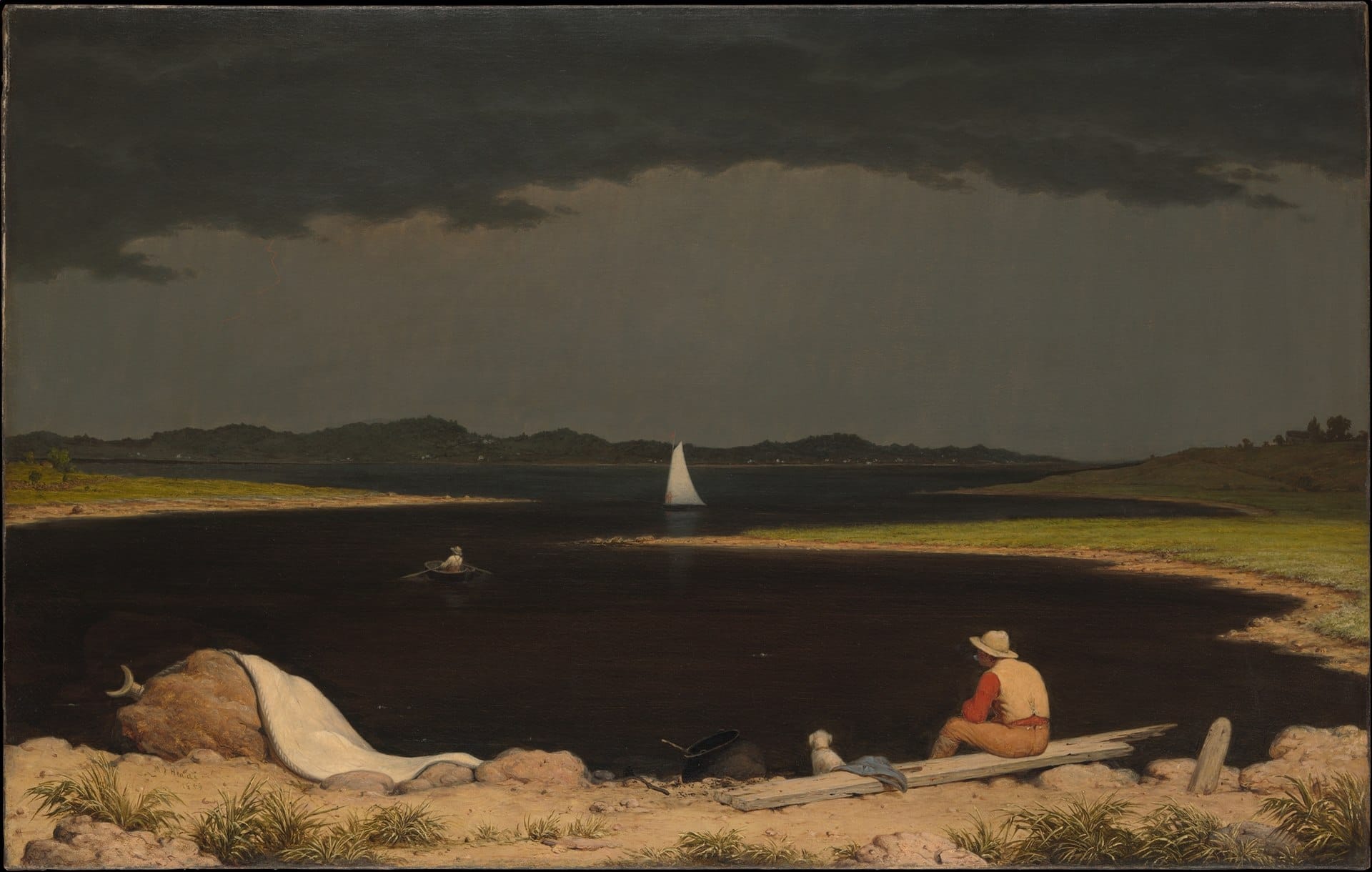
What does it matter really if we have one wife or two or three, or one husband or two or three in the eternity of things? And what does it matter if two men embrace each other and be sealed for eternity? Of course, polygamy is inherently polyandrous, so there would have to be rules: adultery could not be permitted and women would not have a choice over which men they wanted to have as their husbands. That would be the men’s choice, just as it was with the patriarchs in times of old.
This vision of the Saints sealed to each other, to multiple wives, with multiple children, male kinsmen, descendants like stars spread out across the cosmos like those ripples on the pond – this is what appealed to Smith and the Elders who bought into plural marriage. But many fiercely rejected it, seeing it as the serpent in the garden, thus sowing the seeds of the grapes of wrath that would destroy Smith and Nauvoo. The Law of Adoption also ran into trouble and Brigham Young fumed that "some would go to hell for the sake of getting the Devil sealed to them." This was understandable: but rivalry over rank and privilege was the problem, not erotic male bonding.
Melville on the other hand began his own quest for Truth at this time, sailing for the South Seas in 1841, armed only with the Seer Stone of Revelation. And I will give him the morning star.

Polygamy: The Serpent in the Garden
After his first two novels, Typee (1846) and Omoo (1847) were well received, his third novel, Mardi (1849), was not. It is easy to see why: he strayed into outright allegory and everyone hated it. Melville wrote that it "almost everywhere else has been driven forth like a wild, mystic Mormon into shelterless exile." This allusion is not lost on LDS scholars. Melville is a puzzle for them, a kaleidoscope of ideas that tantalize, as if they sense that Melville was the dark brother of Joseph Smith himself, a prophet whose heart and soul were attuned to the LDS faith even as he pulled in the opposite direction.
We are in parallel universes here. A few months after Joseph Smith’s murder in Carthage jail in June of 1844, the Thummim is lost. Melville returns to Boston in October from his adventures aboard whaling ships and a navy man-of-war, still bearing the Urim. As he embarked on writing Typee, Melville found the tales of polygamy that were leaking out of Illinois absolutely fascinating. He read John C. Bennett’s The History of the Saints; Or, An Exposé of Joe Smith And Mormonism and the other scathing critiques. Polygamy, he knew, was the serpent in the garden and in Typee he writes of how the South Sea women had a plurality of husbands, not wives, the reverse of the Mormons. Along with the cannibalism, it was scandalous stuff like this that would generate healthy book sales.
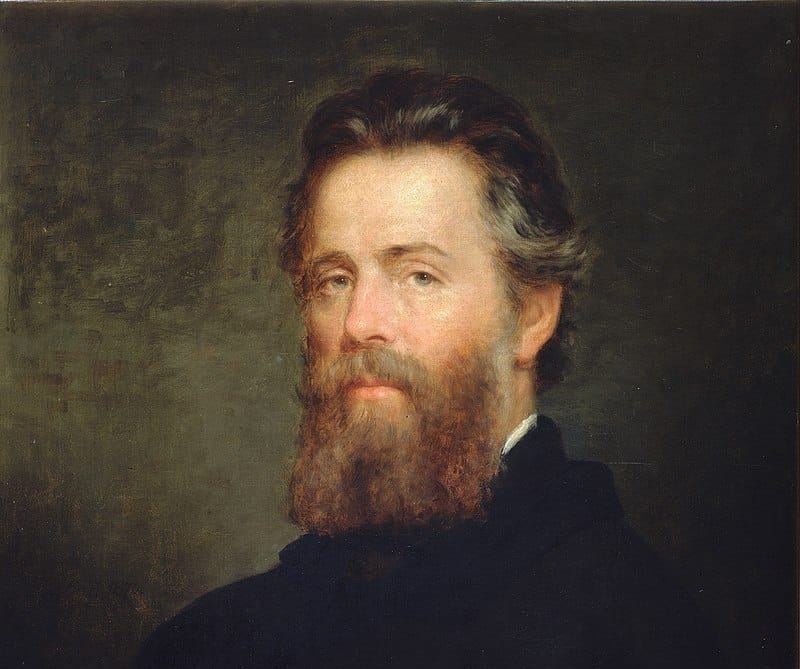
Melville never said these things directly, which is why Mardi didn't sell (neither did Moby-Dick), but others did, drawing on the same traditions of Orientalism, only in purpler prose. For John C. Bennett, Smith was "Mahomet" lusting after his many wives:
The Prince of the Seraglio and the long retinue of Cyprians, Chambered, and Cloistered Saints, where the Lord of the Harem glutted his brutal lusts to the maximum of his sensual desires, in his halcyon days of prophetic glory.
The Whiteness of the Whale and the Pearl of Great Price
Melville was a wanderer in space; Joseph Smith was a wanderer in time. Melville explored the dark spaces of race, sexuality and religion and satirized them while remaining detached. Smith imagined the radiant times ahead and sought to propel his Saints into a joyous Heaven by sheer charisma, but always falling short.
Both men lacked what the other had. In Smith's case, all those flights from Egypt were just running on the same spot. The extraordinary King Follett's Discourse of April 1844, shortly before his death, is an exercise in unrelieved frustration. In Melville's case it was his brilliant masques which are in their own way also about frustration.
A few academics, some of them LDS, have rightly pointed out the strange resemblances between the two mariners, what we might call the Whiteness of the Whale and the Pearl of Great Price – sperm imagery abounds.

Harold Bloom calls Captain Ahab a hero, America’s King Lear. He calls Joseph Smith a genius, with polygamy his masterpiece. George Bernard Shaw said much the same thing and they are right. But perhaps too we could say that Joseph Smith is Melville’s Captain Ahab ("darkness leaping out of light")? LDS scholars, on the other hand, prefer to identify Smith with the Whale, not Ahab, citing Melville’s famous words from his letter of 1849, and they’re right too.
I love all men who dive. Any fish can swim near the surface, but it takes a great whale to go down stairs five miles or more; & if he don’t attain the bottom, why, all the lead in Galena can’t fashion the plummet that will. I’m not talking of Mr Emerson now—but of the whole corps of thought-divers, that have been diving & coming up again with blood-shot eyes since the world began.
This shows why Melville was a genius. But Smith was too. He went to those dark places and came back with blood-shot eyes and, in this reading, Moby-Dick is the doomed voyage of Joseph Smith and his Nauvoo Mormons where Smith is both Captain Ahab and the Whale locked in their perpetual death embrace. It's Shakespeare unhinged.
Moby-Dick is thick with religious imagery and ritual. It is about cycles of revenge and maniacal obsession, to the point where all are destroyed, just like Nauvoo under the charges and counter-charges of the Dissenters, the Conspirators, the Danites and the brutality of the non-Mormons who hated them. But with Smith there is just no getting away from the fact that it was polygamy that did him in and there were too many others – Mormons above all – who resented his attempts to take their wives (William Law stands out) and who did Smith want to ram his harpoon into but the women of Nauvoo? Sperm whales too are said to be polygamous...

The subject of homosexuality in Melville and Moby-Dick is just as interesting. The novel is loaded with homoerotic sensuality, as is much of Melville's writing, and it’s simply inescapable for contemporary gay readers. It's not just the activities in the "marriage bed" of Ishmael and Queequeg or because Ahab, at one point, declares he's a woman (a "flaming queen" as one critic fondly puts it). Homoeroticism saturates the rest of the novel and many automatically assume a sexual relationship with Hawthorne, to whom the novel was dedicated, or they assume Melville was severely repressed:
I feel that this Hawthorne has dropped germinous seeds into my soul. He expands and deepens down, the more I contemplate him; and further, and further, shoots his strong New England roots into the hot soil of my southern soul.
That's sexual imagery of course, but why should we trust E.M. Forster or D.H. Lawrence or W.H. Auden or Leslie Fiedler with their axes to grind? For the same case has been made about Abraham Lincoln and a host of others. Dissenters argue that Melville now was married, he had a newborn baby and another on the way, and he was fascinated throughout his life with sexuality, with the maternal, with vulnerability – all those images of drowning in sperm, the whiteness of the sperm whale, the whale pups and keening seals (and let's not forget that lyrical chapter "The Gilder," with its sly echoes of Joseph Smith and The Book of Mormon).
In this view, Melville was the greatest American writer of the 19th century, so why is it so difficult to accept that he was a prophetic genius like Shakespeare whom he so admired, who could write about real and veiled homosexuality in a subtle and liberated way without necessarily being gay himself, just as he could write about slavery and empire with deep empathy, or about religion as a curious agnostic? That's what any great writer should do.
The Law of Adoption applies, even if it is now as defunct as polygamy. It was meant to be non-sexual, not a Mormon version of gay marriage in the 19th century, and if the rituals at the Spouter-inn and aboard the Pequod crossed that line, and they did, nonetheless Melville isn't Ishmael. Perhaps Melville's sex life can best be summed up in one phrase: "I prefer not to..."
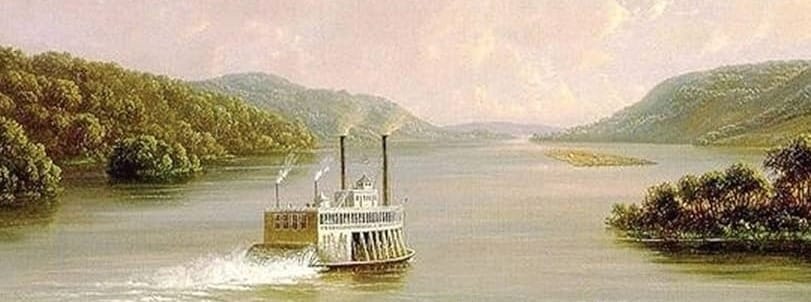
Waiting for the Apocalypse
At the end of things, in a tiny forgotten corner of the universe, an audience takes its seats to hear Goneril, the Mistress of Ceremonies, introduce the evening’s entertainment. Outside the dusk is gathering. Come inside "out of hidden darkness and out of captivity unto freedom," says a welcoming voice.
Ladies and gentlemen, atheists are always the standoffish ones; the true believers plunge right in. This is why we ladies embrace a believer: we have more pleasures in life with them. Can we convert you?
Ants worshipping a toadstool... Is The End of the World a time to come or a place out there?
Religious thinkers favor a time to come, as God arrives in the sky over New Jerusalem at the Apocalypse. Secular thinkers favor a place out there, somewhere over the rainbow, beyond Shangri-La, the South Sea islands, Antarctica starts here. The Apocalypse did come to 19th century America; it was the Civil War and there was no sign of God's hand, just Abraham Lincoln and thunder over heaven... Click on one.
 Thunder over fire Thunder over fire |
 Heaven over the mountain Heaven over the mountain |
 Fire over the mountain Fire over the mountain |
 Thunder over Heaven Thunder over Heaven |
Smith never got past the angels at the gates. Melville crossed the frontiers into Eternity with nothing but a carpet-bag.
